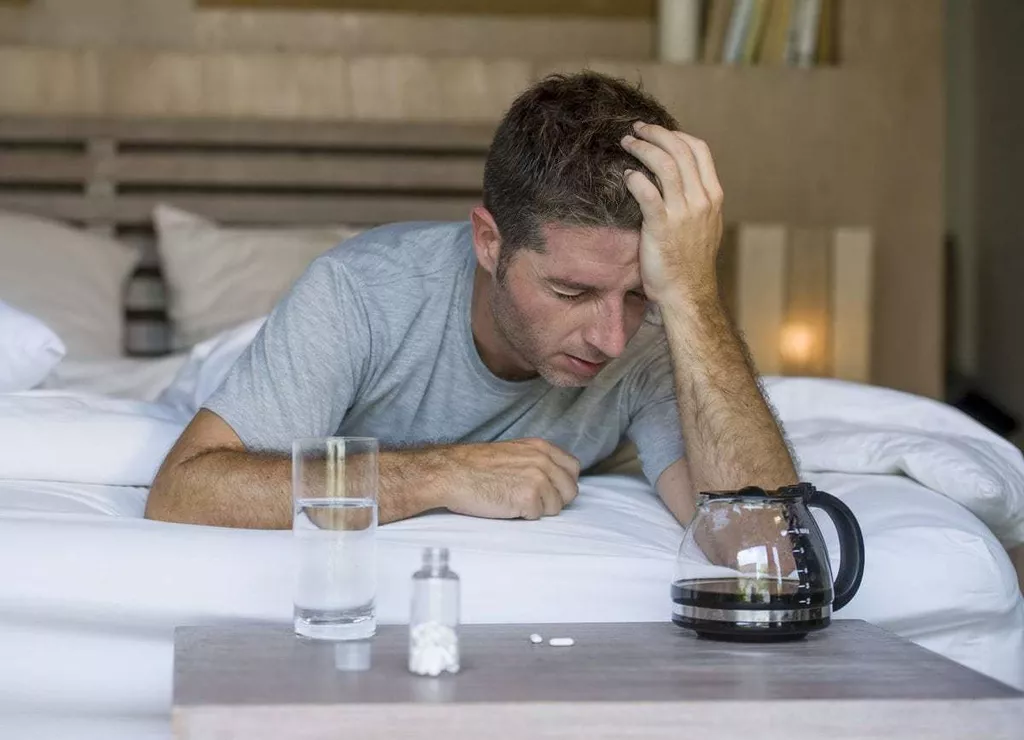What’s the Connection Between Alcohol and Depression?
Content
If you are having a psychiatric or medical emergency, please call 911 or go to the nearest emergency department. To reach the Suicide and Crisis Lifeline, please call or text 988. The Grey’s Anatomy alum worked really hard at controlling her anxiety for years and struggled. You might consider joining a 12-step program like Alcoholics Anonymous (AA) or a non-12-step group like SMART recovery. Our experts continually monitor the health and wellness space, and we update our articles when new information becomes available. CBT can teach you ways to modify your thoughts and behavior to feel better and help you avoid misusing alcohol.
As noted, depression and alcohol abuse are frequently comorbid, meaning they occur at the same time. However, distinctly, depression can also be specifically triggered by alcohol use, producing what is known as alcohol-induced depressive disorder. Some commonly used antidepressants can increase the risk of a person experiencing a relapse into heavy drinking if they are trying to stop or abstain from alcohol. This is why it is important that patients are only taking these medications with the approval of their doctor.
Women’s Only Rehab Near Newport Beach, California – New Directions for Women
Many who struggle with alcohol use disorder (AUD), commonly known as alcohol addiction, may also find themselves struggling with co-occurring mental health disorders. It is characterized by feelings of intense sadness and can last for months or even years. Luckily, effective dual diagnosis treatment for AUD and depression exists and can help one achieve and maintain recovery. Understanding what depression is, how it interacts with substance use, and how to find dual diagnosis treatment can help you begin your journey to recovery. Most clinicians and researchers would agree that alcoholics experience high rates of anxiety and depressive symptoms and that these problems must be addressed early in treatment (Brady and Lydiard 1993). Disagreement also exists about whether longer term independent treatment for depressive or anxiety diagnoses is required for the alcoholic person to achieve a normal level of life functioning.
It is, therefore, not surprising that more than one out of every three alcoholics has experienced episodes of intense depression and/or severe anxiety (Cox et al. 1990; Wilson 1988). These psychological conditions are often intense enough to interfere with life functioning, and the symptoms are often recognized by physicians and other health care providers as serious enough to require treatment. When depressed or anxious alcohol-dependent people are asked their opinions about cause and effect, they often reply that they believe they drink in order to cope with their symptoms of sadness or nervousness. Evidence suggests that drinking alcohol can increase your risk of depression — but depression may also lead to increased alcohol use.
Effects of alcohol when you have depression
She quit drinking for 90 days as a result of these suicidal thoughts and noticed they quickly went away. Kitley ultimately decided to detail her experiences with drinking and depression in her autobiography, “MY self.” Once she began feeling pangs of shame while drinking heavily after work, she decided to go back to AA. Kitley continues to use this fellowship as a resource while working on her sobriety.
Mayfield first quit alcohol at the age of 21, but he didn’t get treatment for depression and started drinking alcohol again about seven years later. Drinking more than three drinks in a single sitting will temporarily cause your blood pressure to rise, but extended binge drinking or regular alcohol consumption can cause a permanent increase in blood pressure. Following a successful detox, an inpatient or outpatient treatment setting may be advised depending a variety of factors determined via a substance use disorder assessment conducted by a medical professional. Inpatient treatment allows for 24/7 monitoring and care in a hospital or other treatment facility. When an individual regularly turns to alcohol to manage negative feelings and challenges, they might not take any other actions that could assist them in effectively addressing those same problems. As a result of that, any troubles a person might be facing, from work stress to even relationships, could get much worse.
How Alcohol Makes Your Depression Symptoms Worse
Practitioners can counteract their patients’ depressive symptoms by providing education and counseling as well as by reassuring the patients of the high likelihood that they will recover from their depressions. Similarly, an alcoholic who experiences repeated panic attacks or other anxiety symptoms requires intervention for the anxiety, regardless of the cause. Alcoholics who experience high levels of anxiety or nervousness, including panic attacks, will likely benefit from education and reassurance as well as from behavioral therapies aimed at increasing levels of relaxation. The majority of participants were male, low-income and identified as Black/African American; 77% reported being diagnosed with at least one substance use disorder; and 64% met the criteria for at least one psychiatric disorder. The researchers conducted a series of tests and interviews to measure delay discounting, distress tolerance, and alcohol use and major depressive disorders. Heavy drinking is also known to increase the risk of experiencing depression.

As a licensed therapist, Kitley knew the signs of depression and substance abuse — in fact, she attended an Alcoholics Anonymous (AA) meeting as part of her required grad school training. There may be some subtle things you’re doing that are working against you and making your symptoms worse. Additionally, a 2020 paper published by Lancet Psychiatry notes that AUD can cause other psychiatric conditions to develop, and vice versa. However, the presence of AUD that is comorbid with another psychiatric disorder can also manifest as a result of shared genetic, psychopathological, and environmental factors. Alcohol’s depressant nature hampers the pleasure centers of your brain, which can eventually lead to chronic mood issues. Suddenly quitting antidepressants can cause uncomfortable withdrawal symptoms, both physically and mentally.
Why Might People Experience Depression After Drinking Alcohol?
Effect sizes (Cohen’s d, partial eta squared for continuous outcomes and Odds Ratios for categorical outcomes) were calculated where statistical differences between groups were obtained. When COVID-19 hit — bringing the compound stressors of illness and uncertainty — it threw many individuals into instant, alcohol and depression extreme stress. And plenty of people who had been “social drinkers” began drinking more alcohol to cope. In fact, a report led by Harvard researchers affiliated with Massachusetts General Hospital found that excessive drinking in the U.S. increased by 21 percent during the COVID-19 pandemic.

Match with a licensed therapist and get convenient care from anywhere. Have a confidential, completely free conversation with a treatment provider about your financial options. You might also want to consider natural supplements such as tyrosine, 5-HTP, and ashwagandha to help rebalance your brain’s neurotransmitters. Just check with your doctor before trying these, especially if you’re taking medication. Once you begin your healing journey, it’s important to engage in self-care. Consider looking into holistic therapies such as yoga or meditation.
Similarly, Eberhard et al. [26] reported that among 1670 non-psychotic outpatients, 21 % were hazardous drinkers. Alcohol dependence has been shown to be genetically influenced and to run in families (Schuckit and Smith 1996). The disorder often develops when individuals are in either their twenties or thirties.
- The most consistent results relate to manic episodes, wherein manic-depressive patients show a small but significant increased risk for alcoholism (Winokur et al. 1993).
- As recently reviewed in the literature, some interesting data also support a possible relationship between longstanding anxiety or depressive disorders and alcoholism (Kushner et al. 1990; Kushner 1996).
- However, a prospective followup of 204 Danish COA’s and control subjects by Knop and colleagues1 demonstrated no differences between the 2 groups by age 20 with respect to either depressive or anxiety disorders.
- A dangerous cycle can be created, causing more frequent anxiety and depression and more frequent alcohol abuse.
- The use of medication to treat an alcohol use disorder and a major depressive disorder depends entirely on the individual and their circumstances.
Almost everyone goes through at least a few periods of depression during their life. For some individuals, however, the problem is much more severe and protracted. While the causes of depression are not https://ecosoberhouse.com/article/marijuana-addiction-how-addictive-is-weed/ clearly understood, they include a number of genetic, environmental, and personal factors. Depression can severely impact a person’s personal and professional life and potentially even lead to suicide.
Alcohol’s Effect on Your Brain – Depression:
Tapering or gradually reducing doses of antidepressant medications should always be done under medical supervision. “Serotonin’s role in alcohol’s effects on the brain.” Alcohol health and research world, 1997. There are many misconceptions about alcoholism that make it sound like an alcoholic is an easy person to spot, however, many alcoholics function effectively and lead relatively normal lives.
- It can also limit their ability to function at home, work, or in school.
- Males in the clinical group reported significantly higher rates of alcohol consumption and hazardous drinking than did males in the general population.
We may receive advertising fees if you follow links to promoted online therapy websites. Start making positive changes with the help of a licensed therapist from Calmerry. Helpline responders support you by listening to you, helping you understand your emotions better, and working with you on a plan forward. Having a plan about what to do next can help you feel more in control. Knowing what to expect can help you feel more confident to access the free support that is available to you. Centrum Seksueel Geweld – Sexual Assault Center offers 24/7, free, compassionate and confidential support over phone and online…
Faculty voice: Mental Health First Aid for teens and youth
High levels of depression are especially worthy of concern, because the risk of death by suicide among alcoholics, estimated to be 10 percent or higher, may be most acute during these depressed states. It can influence your mood and produce feelings of pleasure, motivating you to continue behaviors that make you feel good — like drinking alcohol. For some individuals, these may feel minor, but if they are already experiencing anxiety, the effects of the hangover can often make them worse. Drinking alcohol can also increase an individual’s anxiety levels in certain situations, like social gatherings, family events, etc. As a result, they tend to focus on the negative and ignore the positive information around them.
- When Benjamin Lerner — a writer, radio host, and recovery advocate with All Sober — had his first beer at age 13, he noticed it dulled his fears, insecurities, and inhibitions.
- Alcoholics frequently experience episodes of intense depression and/or severe anxiety.
- Effect sizes (Cohen’s d, partial eta squared for continuous outcomes and Odds Ratios for categorical outcomes) were calculated where statistical differences between groups were obtained.
- Drinking more than three drinks in a single sitting will temporarily cause your blood pressure to rise, but extended binge drinking or regular alcohol consumption can cause a permanent increase in blood pressure.
- Indeed, several disorders are more likely to be observed in COA’s than in control groups, including conduct problems, such as difficulties with discipline at home or in school (Schuckit and Hesselbrock 1994).
It’s never too early to address concerns with alcohol use—or concerns with mental health issues that might be affected by alcohol use. Means and standard deviations for the continuous variables were calculated and compared using independent t-test and Analysis of Covariance (ANCOVA). ANCOVA was used to adjust for the uneven gender distributions in the general population and in the clinical sample when analysing the continuous variables. Chi-square tests were used to compare the proportion of hazardous drinkers, binge drinkers and abstainers in the depressed and general populations. Analyses were stratified by gender and age (17–27, 28–50 and 51–71 years old), similar to the age distribution used when analysing the general population [15].
